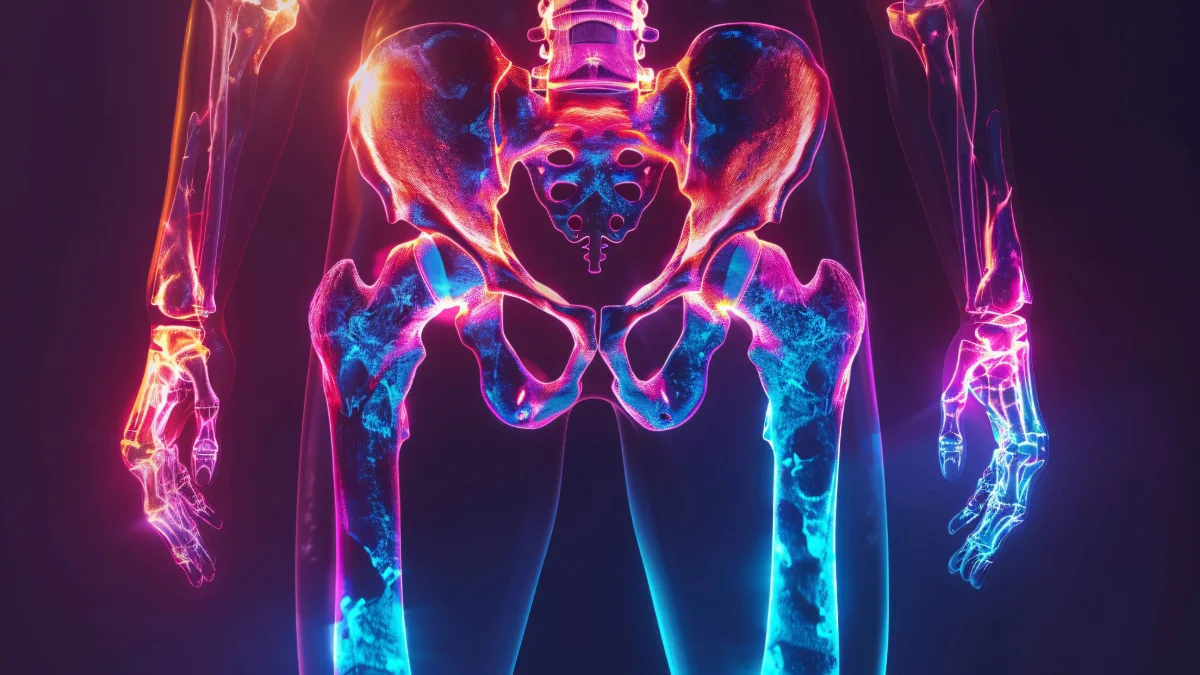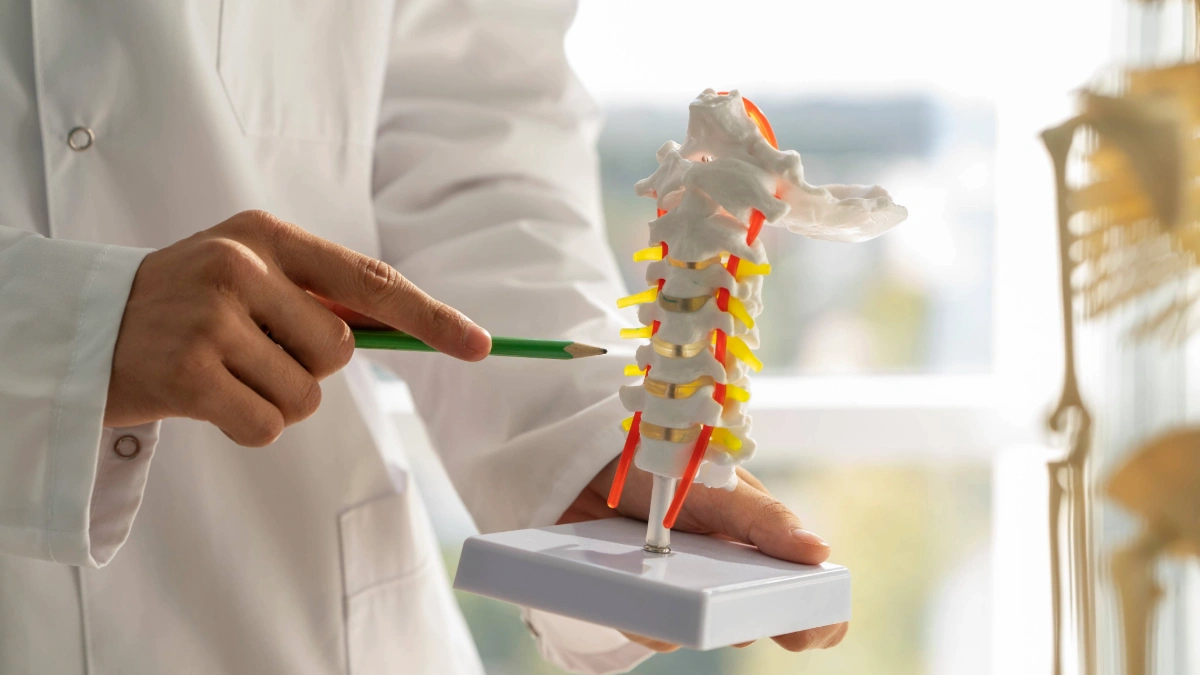Thyroid cancer is a condition characterized by the growth of abnormal cells in the thyroid gland, part of the endocrine system. Located at the base of the neck, the thyroid gland plays a crucial role in producing hormones that regulate body temperature, heart rate, and metabolism. Even though thyroid cancer is relatively rare in places like the UK, it’s a condition that demands attention due to its varying severity and potential complications.
What is Thyroid Cancer?
This cancer originates in the thyroid gland, a small butterfly-shaped gland situated in the front, lower part of the neck. An essential driver behind many bodily functions, the thyroid gland secretes hormones integral to digestion, muscle function, and heart operations. The seriousness can vary depending on its type, size, and whether it has metastasized. Generally, most forms of this cancer can be effectively treated with appropriate medical intervention.
Symptoms of Thyroid Cancer
It often does not cause noticeable symptoms in its early stages. However, as it progresses, several signs may become evident:
- A lump in the neck, which is typically hard, gradually enlarges and is painless.
- Hoarse voice.
- Sore throat.
- Difficulty swallowing or breathing.
- Pain in the front of the neck, or a sensation of pressure.
Other possible symptoms include:
- Flushed face.
- Diarrhea.
- Weight loss.
- Persistent cough.
Causes of Thyroid Cancer
While the exact cause is not always clear, various factors can increase the likelihood of developing it:
- Being female.
- Having a thyroid condition like goitre, Hashimoto’s disease, or nodules.
- Family history.
- Previous exposure to radiation, especially during childhood.
- Pre-existing conditions like breast cancer, oesophagal cancer, testicular cancer, or non-Hodgkin lymphoma.
Lifestyle choices can also play a role in the likelihood of developing cancer.
Types of Thyroid Cancer
This cancer type is categorized based on the cellular characteristics of the tumour:
- Papillary Thyroid Cancer: The most common form, typically affecting individuals aged 30-50.
- Follicular Thyroid Cancer: Often affects individuals over 50 years old and is slightly more aggressive than papillary. It less commonly spreads to the lymph nodes but might metastasize to organs like the lungs and bones.
- Hürthle Cell Thyroid Cancer: A rare and aggressive variant previously classified under follicular cancer. It can spread to structures in the neck and other parts of the body.
- Poorly Differentiated Thyroid Cancer: This rare type is more aggressive and less responsive to standard treatments.
- Anaplastic Thyroid Cancer: Extremely rare and aggressive, typically affecting people older than 60. It can cause rapid neck swelling and other severe symptoms.
- Medullary Thyroid Cancer: Originating from C cells in the thyroid, it often leads to elevated calcitonin levels. This type can be hereditary, linked to gene mutations like RET.
- Other Rare Types: These include thyroid lymphoma and thyroid sarcoma, both of which start in different cell types within the thyroid gland.
Lowering the Risk of Thyroid Cancer
Although it cannot be entirely prevented, making healthy lifestyle choices can potentially reduce the risk of various cancers.
Tests and Next Steps
If thyroid cancer is suspected, several diagnostic tests are conducted:
- Blood tests.
- Ultrasound of the neck.
- Needle biopsy to sample thyroid tissue.
Results may take up to two weeks. It’s important to consult with your healthcare provider to discuss the outcomes and subsequent steps.
Treatment for Thyroid Cancer
Main Treatments
Treatment strategies depend on its type, size, spread, and the patient’s overall health. Typically, treatments include:
- Surgery: Total or partial thyroidectomy.
- Hormone Therapy: To replace hormones post-surgery and prevent recurrence.
- Radioactive Iodine Treatment: Uses radiation to destroy cancer cells.
- Targeted Medicines: To inhibit cancer growth when other treatments are ineffective.
- Radiotherapy: High-energy radiation to kill cancer cells.
- Chemotherapy: Though less common, it can be used when cancer recurs or spreads.
Surgery
Depending on the cancer’s extent, surgery can involve removing the entire thyroid (total thyroidectomy) or just a part of it (partial thyroidectomy or lobectomy). Lymph nodes may also be removed if cancer has spread to them.
Hormone Therapy
Post-surgery, patients often need hormone replacement therapy to substitute the hormones formerly produced by the thyroid gland. This therapy also mitigates the risk of cancer recurrence.
Radioactive Iodine Treatment
This treatment involves ingesting radioactive iodine to eliminate any remaining cancerous cells following surgery or as a treatment for recurring or metastasized cancer.
Targeted Medicines
These medicines target specific aspects of cancer cells to stop their growth, particularly when other treatments fail or the cancer has metastasized.
Radiotherapy
Radiotherapy employs high-energy rays to kill cancer cells, used when surgery isn’t viable or cancer has spread.
Chemotherapy
Chemotherapy is a rarer treatment for cancer, reserved for cases of recurrence or metastasis.
What are the Thyroid Cancer Stages?
The staging depends on the size of the tumour and its spread:
- Stage I: Cancer is confined to the thyroid and measures up to 2 cm.
- Stage II: Tumor size may be larger but remains within the thyroid.
- Stage III: The cancer might spread to nearby lymph nodes or structures.
- Stage IV: Indicates distant metastasis to other parts of the body, like the lungs, bones, or brain.
Consult your healthcare provider to understand the specific implications of your stage.
Risk Factors
Factors increasing the risk of this cancer include:
- Gender: It occurs more frequently in women.
- Radiation Exposure: Previous radiation treatments to the head and neck raise the risk.
- Genetic Syndromes: Conditions like familial medullary thyroid cancer, multiple endocrine neoplasia, Cowden syndrome, and familial adenomatous polyposis.
Complications
Cancer Recurrence
Thyroid cancer can recur even after successful treatment. Recurrence is more likely if the cancer is aggressive or has spread before treatment. It often appears within the first five years of diagnosis. Potential sites for recurrence include lymph nodes in the neck, remaining thyroid tissue, or distant organs.
Metastasis
If cancer spreads, it can reach:
- Lymph nodes in the neck.
- Lungs.
- Bones.
- Brain.
- Liver.
- Skin.
Regular follow-ups and imaging tests like CT, MRI, and PET scans can help detect metastasis early.
Prevention
For High-Risk Individuals
People with a familial history or inherited gene mutations may consider preventive thyroidectomy. Genetic counselling helps in understanding the risks and treatment options.
For Those Near Nuclear Plants
In case of radiation exposure from nuclear plants, potassium iodide can reduce the thyroid’s radiation absorption. Consult local emergency management for more details if living near such facilities.
Gender Disparity and Hormonal Influence
One of the most striking features of thyroid cancer is its disproportionate occurrence in women compared to men. Experts believe that the hormonal differences between the sexes, particularly the role of estrogen, may play a significant part in this gender disparity. Ongoing research and interviews with endocrinologists have shed light on the complex interplay between hormones and the development of thyroid cancer, offering valuable insights for healthcare providers and patients alike.
Genetic Factors and Familial Risk
Certain genetic syndromes, such as familial medullary thyroid cancer and multiple endocrine neoplasia, can significantly increase an individual’s risk of developing thyroid cancer. Genetic counselling plays a vital role in assessing the risk and guiding appropriate screening and preventive measures for high-risk individuals and their families.
Impact of Lifestyle and Environmental Factors
While the primary causes of thyroid cancer remain elusive, research has shed light on the potential role of lifestyle and environmental factors in the development of this disease. Exposure to radiation, particularly during childhood, has long been recognized as a significant risk factor for thyroid cancer. Additionally, studies have explored the impact of diet, obesity, and other environmental exposures on the incidence of thyroid cancer.
Thyroid Cancer Across Age Groups
This type of cancer can affect individuals of all ages, from children to the elderly, and the presentation and management of the disease can vary significantly across different age groups. Healthcare providers must tailor their approach to address the unique needs and considerations of each patient, taking into account factors such as growth and development, comorbidities, and treatment tolerability.
Conclusion
Thyroid cancer, while often curable, requires thorough diagnosis and treatment planning. At the Avicenna International Hospital, we offer comprehensive care tailored to each patient’s unique needs. Our multidisciplinary team is dedicated to ensuring the best possible treatments for thyroid cancer in Turkey.
While it can’t be entirely prevented, lifestyle modifications and genetic counselling for high-risk individuals can mitigate risk factors.
Yes, it is generally a highly treatable form of cancer. With early detection and appropriate treatment, the majority of thyroid cancer cases have excellent outcomes.
The overall 5-year survival rate is quite high, around 98% for localized disease. The survival rate decreases for more advanced stages but remains relatively good compared to many other cancer types. For example, the 5-year survival rate is around 55% for stage IV thyroid cancer. With early detection and proper treatment, many patients with thyroid cancer can go on to live long, healthy lives.







